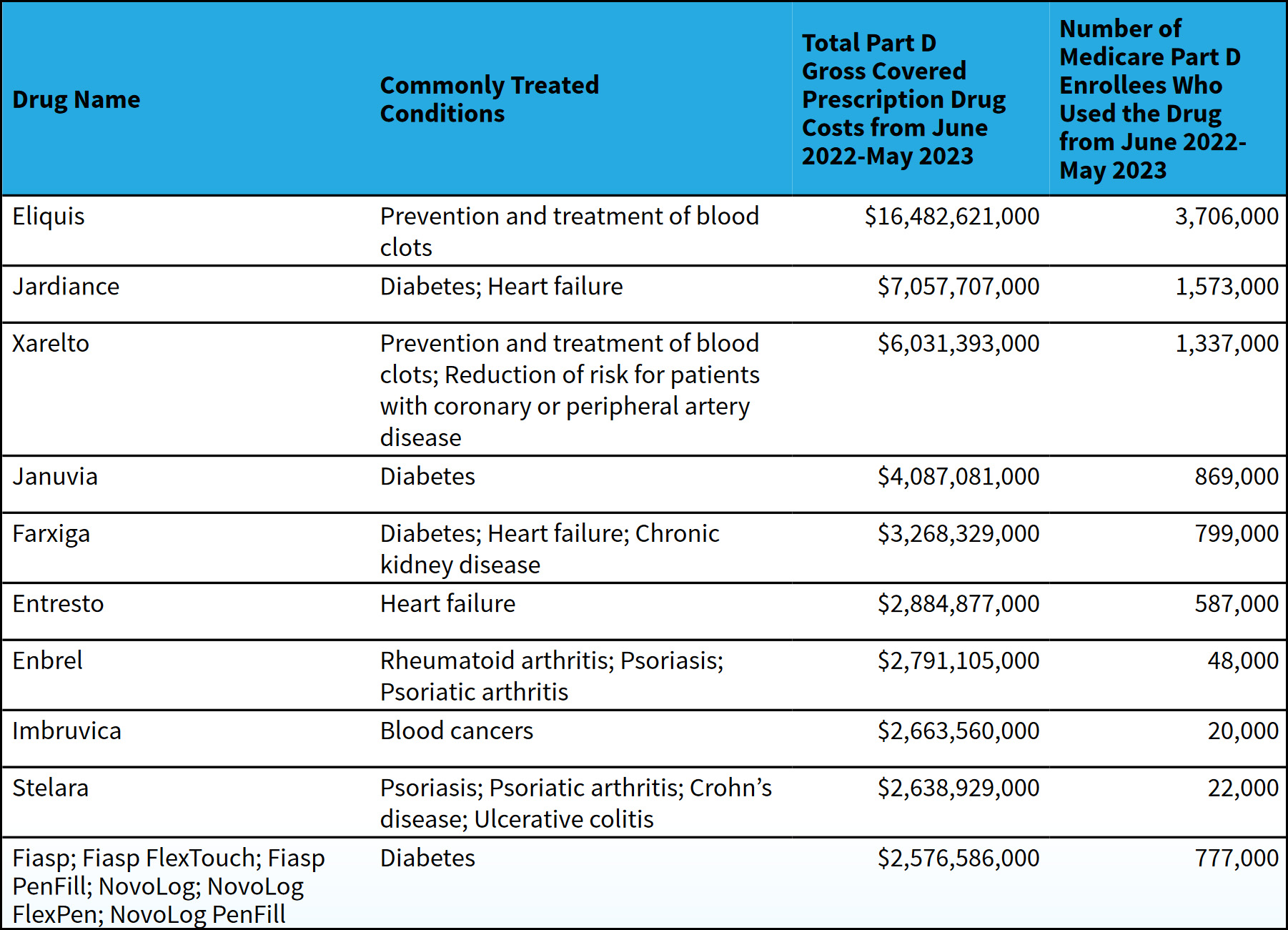The Inflation Reduction Act was mostly a climate bill, but it also included a few other things. One of them was a provision that allows Medicare to start negotiating the price of prescription drugs instead of just paying whatever vendors feel like charging. Negotiations between buyer and seller are a standard part of market economies, so this makes total sense.
Medicare was allowed to choose ten drugs to start with, and today they announced what those would be:
 This is like a greatest hits list of the pharmaceutical commercials on my TV. Altogether it adds up to $50 billion in Medicare spending, which means the federal government can save upwards of $10 billion if it's able to negotiate even a 20% reduction in price. The new prices will go into effect in 2026.
This is like a greatest hits list of the pharmaceutical commercials on my TV. Altogether it adds up to $50 billion in Medicare spending, which means the federal government can save upwards of $10 billion if it's able to negotiate even a 20% reduction in price. The new prices will go into effect in 2026.

Per CNN:
Such excise taxes however are not a standard part of market economies. https://www.cnn.com/2023/08/29/politics/medicare-drug-price-negotiations/index.html
True, but the market is not that free. As for pulling their drugs from the Medicare and Medicaid markets--that's standard stuff in negotiations.
In a market economy there are multiple producers all competing on the basis of price and quality and none of these drugs satisfy that due to patent protection. Eliminate patents, and all the shenanigans that go on in the supposedly competitive generic drug business to prevent real competition and then we can talk about how excise taxes distort market economies.
I had a stroke last year and had to start taking Eliquis (top drug on the list). The retail cost was $600/month, but my doctor had a coupon that cut the cost to $10. I’m sure Medicare can shave at least 80% off of what they’ve been paying (saving $12 billion+ per year). I should add, my cardiologist says that Eliquis is a wonder drug.
At least 7 of the drugs are ones I'm familiar with only through their constant TV advertising. I hope this doesn't affect their "Jeopardy!" sponsorships 😉
BUT WON'T SOMEONE PLEASE THINK OF THE PHARMA BROS?!?!
The underlying problem is that a bunch of pension funds are invested in the stock market. It was an insidious little plan that keeps everyone wary of disrupting the market too much.
I think it would be worth describing what exactly is meant by "negotiation". As near as I can tell, the price is defined in the Inflation Reduction Act, with some room for discretion by the Centers for Medicare and Medicaid Services. For single-source drugs that have been approved for at least 7 years (as of now), the price is 25% less than the current average price. For single-source drugs that have been approved for at least 16 years (as of now), the price is 75% less than the current average price. The negotiation involves how to calculate the formula, and whether to apply the CMS's discretion.
So, price controls based on reduction from current prices, not negotiation in any meaningful sense.